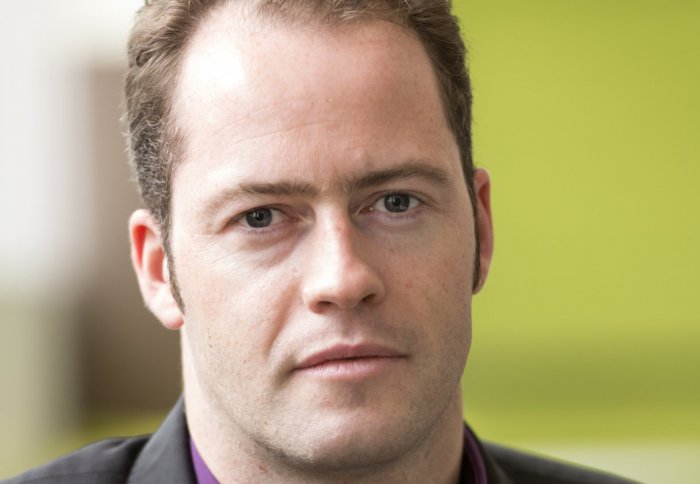How carbon capture and storage technology could help to avoid climate change
by Jenn Rowater

Dr Niall MacDowell
Dr Niall MacDowell explains how progress in carbon capture and storage will affect each and every one of us.
Dr Niall MacDowell, a lecturer in Energy and Environmental Technology and Policy and a Chartered Engineer with the Institution of Chemical Engineers, leads Imperial’s Clean Fossil and Bioenergy Research Group. A recognised expert in the field of carbon capture and storage (CCS), he explains below why the combination of CCS technology and enabling policy is so important to the future of this field – and the planet.
“I would go so far as to say, there is no one in the world to whom this is not in some way relevant”
– Dr Niall MacDowell
Lecturer in Energy and Environmental Technology and Policy
“In carbon capture and storage (CCS), everything is policy related. The technology has been deployed around the world for decades and proved at scale in Canada and Australia. But whether it is successfully deployed for climate mitigation comes down to government policy.
That’s because CCS requires billion-dollar investments. And it is not just financially challenging but technically, commercially and legally complex, so all of these sectors need credible guarantees and long-term coherent government policy.”
The imperative to act now
“In the past, carbon capture and storage has been seen as a way of ‘green washing’ dirty fossil fuels or replacing renewables. But CCS actually paves the way towards negative emissions technology.”
– Dr Niall MacDowell
Lecturer in Energy and Environmental Technology and Policy
“Governments have already agreed that climate change is one of the biggest - if not the biggest - challenge facing humanity. I would go so far as to say, there is no one in the world to whom this is not in some way relevant
In 2015, 195 countries came together in Paris for the United Nations Climate Change Conference and agreed to a 1.5ºC limit to temperature increase by the end of the century.
In the past, carbon capture and storage has been seen as a way of ‘green washing’ dirty fossil fuels or replacing renewables. But CCS actually paves the way towards negative emissions technology.
CCS is key to reaching these targets, so it’s not enough to show that the technology works; we must also get governments to a place where they understand the value of CCS – not just the cost.”
Cost versus value
“Mitigating climate change with CCS may be expensive but it’s cheaper than trying to adapt to it - around 2-3% of GDP as opposed to around 10%.
This means UK savings in the billions – around £30 billion in the period to 2050, and EU savings in the trillions.
Plus there’s job creation and not just for academic scientists but for engineers and all those people who’ll do the building work. Essentially, it means creating a whole new industry and all sectors of the economy stand to benefit.”
How alumni can get involved
If you are interested in this area, there is so much you can do to help.
For example, if you could fund a PhD scholarship in the Clean Fossil and Bioenergy Research Group or take a student on secondment, that would be fantastic.
Similarly, if you’re keen to learn we can help you understand and disseminate the message about CCS – which would also be a big help. As a first step, please visit the Faculty’s giving pages.
Dr Niall MacDowell is part of a world-class team leading research on the transition to a sustainable energy future. He was part of the Imperial’s delegation to the UN’s Framework Convention on Climate Change (COP18) in Doha; is a member of the UNECE’s Gas Experts Group on Sustainable Energy he has travelled to Canada, the USA, China and Korea on behalf of the Foreign Office; and he has been invited to provide written evidence to members of the Select Committee on Energy and Climate Change. It’s great to have him at Imperial.
Article text (excluding photos or graphics) © Imperial College London.
Photos and graphics subject to third party copyright used with permission or © Imperial College London.
Reporter
Jenn Rowater
Advancement